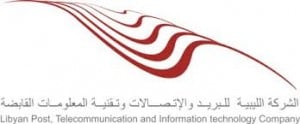By Sami Zaptia.

London, 13 June 2017:
The disunity of the state-owned Libyan Post Telecommunication and Information Technology Company (LPTIC) has led to the misappropriation of its funds in support of the unrecognized Tripoli self-appointed National Salvation Government (NSG), a UN report reveals.
The report comes in line with its general findings that Increased disunity of Libyan state institutions reduces oversight and increases misappropriation a UN report reveals.
The assessment was made by the 299-page UN Libya Experts Panel report 2017 released last week.
The report stated that ‘‘the Panel finds that the key financial institutions of Libya remain more divided than ever’’, and that ‘‘control over their infrastructure, assets and personnel has further fragmented. This has reduced the possibility for oversight and increased the risk of misappropriation’’.
It also reports that the Presidency Council itself ‘‘has been divided over the organization of and appointments in key institutions. ‘‘For example, Ahmed Maetig has repeatedly advocated removing Faisel Gergab from the Libyan Post, Telecommunication and Information Technology Company. In addition, in those cases where the Presidency Council did reach a decision, the decision has been further contested externally and the Council mandate questioned’’.
‘‘The Libyan Post, Telecommunication and Information Technology Company is another key strategic Libyan institution at risk of duplication and misappropriation of funds. It represents a total value of over $20 billion, $7 billion of which constitute cash assets in banks in Tripoli’’.
‘‘In 2015 and 2016, the entity’s revenue represented over 10 per cent of the Libyan budget. It is also a major employer paying over 17,000 salaries’’.
‘‘The control over the Company lies mainly with its 2013 management, which has operated from Bayda and Malta since August 2014. That management, headed by the Chair, Faisel Gergab, is also recognized by the Presidency Council and can travel relatively freely throughout the country, including Tripoli’’.
‘‘Nevertheless, its authority has been challenged in both the east and the west, and not all subsidiaries respond to it. Furthermore, it has no access to the head office in Tripoli’’.
‘‘The strongest challenge to the authority of the 2013 management originates from individuals affiliated with the National Salvation Government. In October 2014, the National Salvation Government appointed a temporary “Steering Committee” led by Majdi al-Shibani in an attempt to replace the Companys’ traditional governance structure’’.
‘‘Both Al-Shibani and his replacement, Adel Markows, respond to the former Minister of Telecommunication of the National Salvation Government, Sami al-Fantazi, who is a commander of an armed group, the National Mobile Force’’.
‘’Al-Fantazi remains in charge of the Ministry of Telecommunication, and his forces control the Company’s head office on Zawiyah Street’’.
‘‘The Panel has received information that Al-Fantazi and the “Steering Committee” have been funnelling Company assets to the National Salvation Government since 2014. The Panel is investigating documentation and the allegation that they provided direct financial assistance to the National Salvation Government on at least two separate occasions’’.
‘‘The Al-Thinni Government has also attempted to strengthen its control over the corporate governance structure of the Company, similar to its actions regarding the Libyan Investment Authority. It appears, however, that these attempts were unsuccessful’’.







